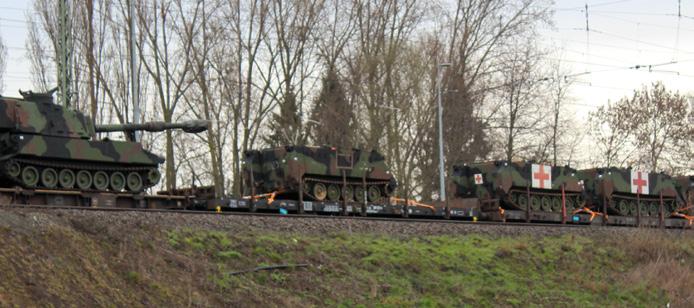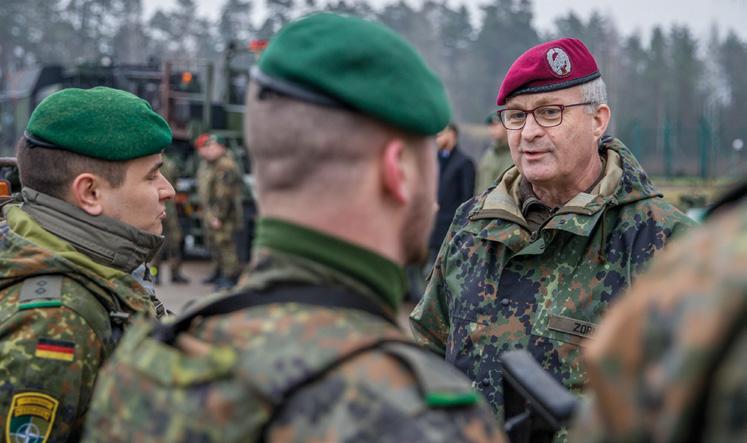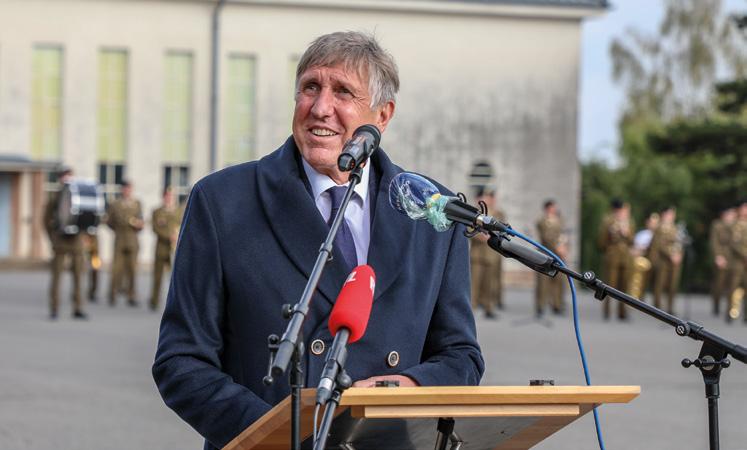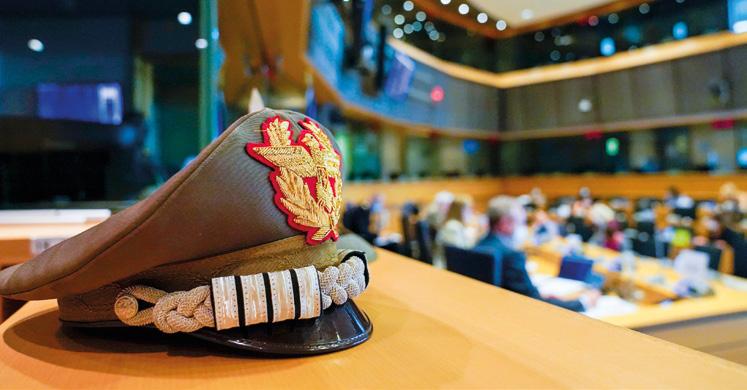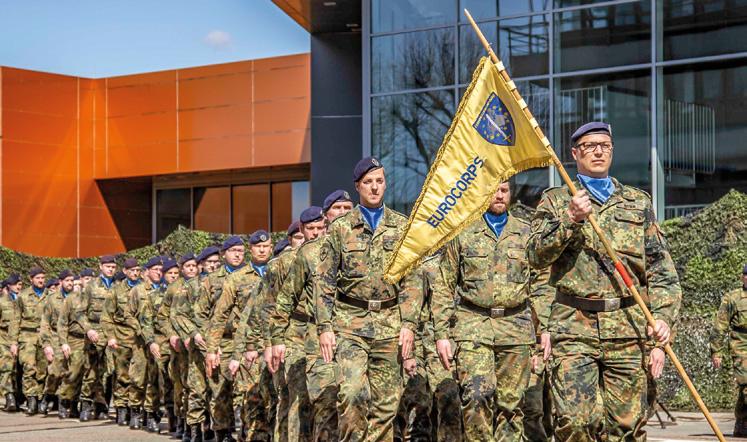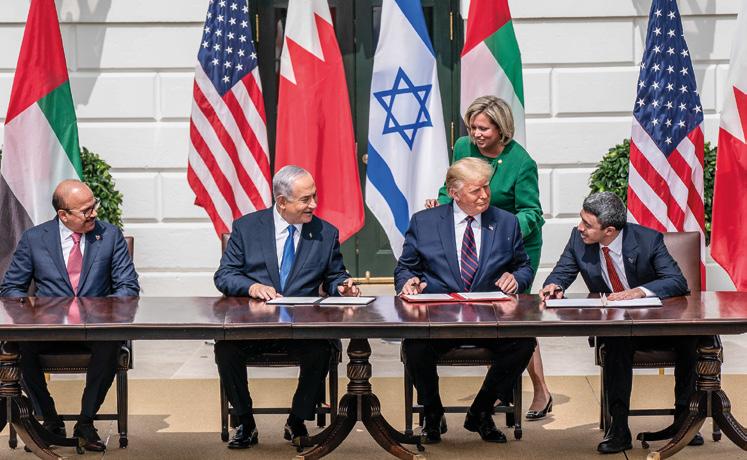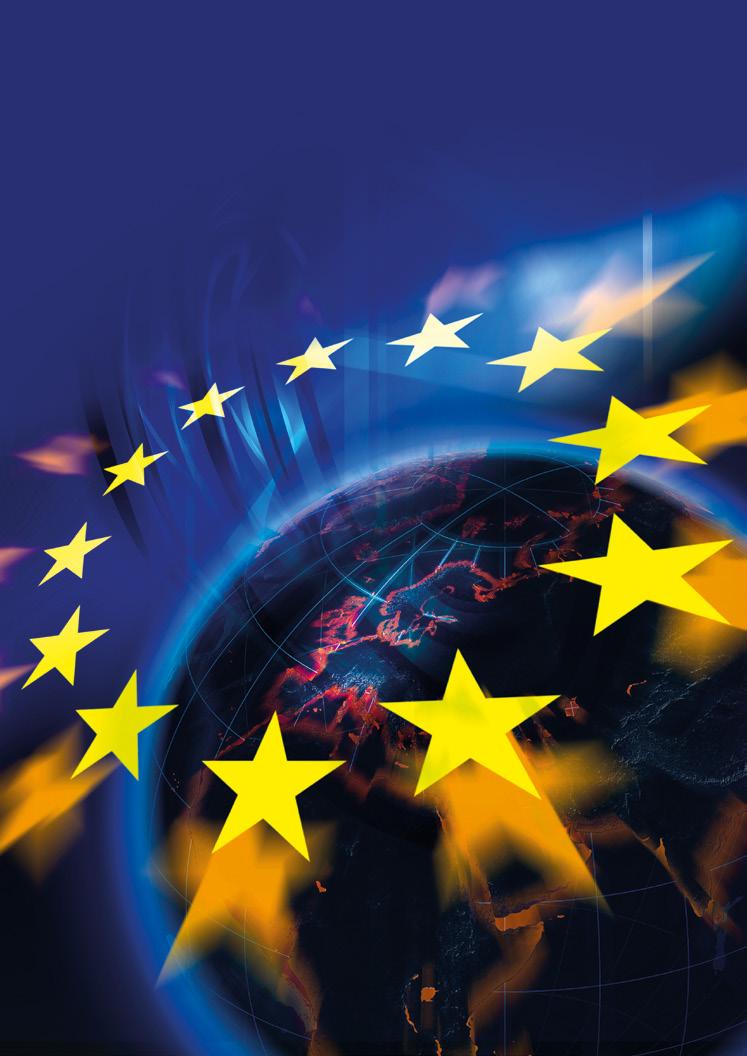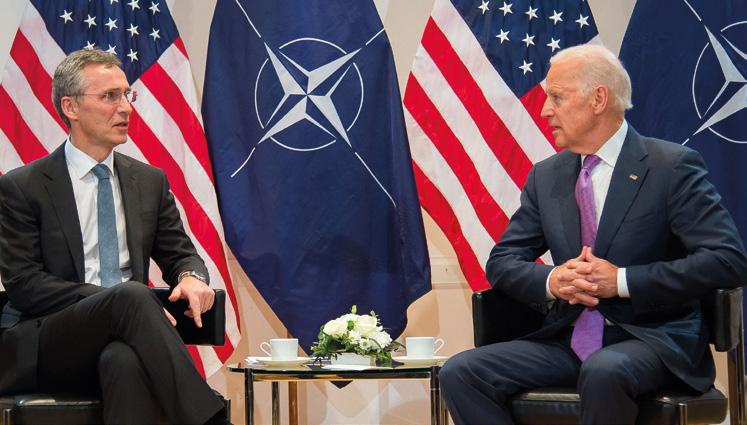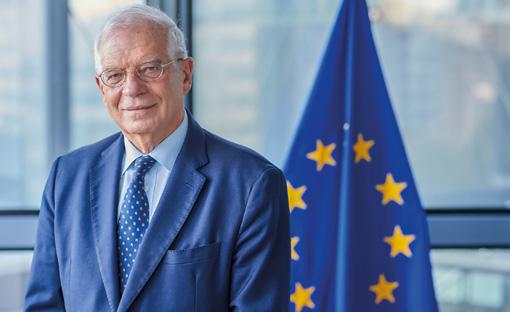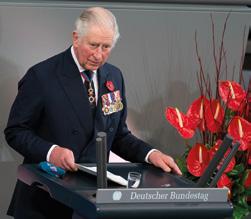MAIN TOPIC: Quo vadis Europe?
It is important to keep the US engaged
Maintaining the rules-based international order in the age of the US-China rivalry by Professor Hideshi Tokuchi, Senior Fellow, National Graduate Institute for Policy Studies, Tokyo
I
n 1954, when the then Japanese Prime Minister Yoshida visited west Germany, he emphasised to the Germans that European nations should pay more attention to east Asia as the communist bloc would go on the offensive, striking at the liberal bloc’s most vulnerable point. He concurred with them that as the world was divided into liberals and communists, Japan and west Germany had no other options but to align with the US. Though the Cold War ended a long time ago, his view has not lost its relevance.
The nature of the US-China rivalry The US-China rivalry has proved to be systemic. It extends to lots of areas including economy, technology, security, values, and ideology. Their confrontation is intensified by the spread of the novel coronavirus. For the US, China’s challenge is similar to the mix of the Soviet Union’s military challenge and Japan’s economic one in the Cold War era. Some Americans argue for the decoupling of China, but this is impossible. Social distancing with China is inevitable, but its isolation is unrealistic as China is fully integrated in the world. Though mutual interests do not much overlap, a number of important areas remain on which the two nations must cooperate, including climate change. China is trying to kick the US out of Asia, but this is also impossible. The US is naturally an Indo-Pacific power. The US-China rivalry has had a huge impact on the rules-based liberal international order. Although China itself has benefited from the order, it expresses strong dissent to it. The Chinese are more assertive, trying to change the status quo by force and coercion. It is a big challenge for all the responsible mem-
Professor Hideshi Tokuchi is a visiting professor at the National Graduate Institute for Policy Studies (GRIPS) in Tokyo. Born in 1955, he holds a law degree from the University of Tokyo and a master’s in law and Photo: private
diplomacy (M.A.L.D.) from the Fletcher School of Law and Diplomacy. He
joined Japan’s defence agency in 1979. From 2014-2015 he served as the country’s first ever vice-minister of defence for international affairs after completing several senior assignments in the Ministry of Defence.
“Advanced democracies in Europe and in the Indo-Pacific must unite to enhance their security cooperation.
”
bers on this planet. The rules-based liberal order is a western idea, particularly the product of the American political system. Thus, its viability depends on two conditions: that American democracy remains sound and that the US stays committed to international affairs and to its leadership role. One might question whether these conditions will be fully met in the future, particularly because of the impact of three things we see in the US: the deindustrialisation of the society due to the progress of globalisation, the widening gap between rich and poor due to the reduction of social welfare, and weariness in respect of diversity. However, it is no use being too pessimistic. The US public is not necessarily inward-looking. They continue to be interested in international affairs. They will be never complacent about being second. Their resilience will not be dismissed. So what should we do now?
Security cooperation of liberal democracies The US cannot do much on its own, but we can do even less without the US. The important thing is to keep the US engaged and to help generate an international environment where it can reestablish its leadership role. Incidentally, the “Quad”, the quadrilateral framework of the US, Japan, Australia and India, the four major maritime democracies, for their diplomatic coordination in the Indo-Pacific, is active in trying to achieve a free and open Indo-Pacific. It has been elevated to a minister-level platform. Even the idea of a “Quad Plus” is emerging among some experts in these countries. European democracies will be strong candidates of “Quad Plus” membership. Neither the “Quad” nor the “Quad Plus” will be an alliance, but it should be a robust coalition of liberal democracies to counter new threats that authoritarian countries have engineered which traditional alliances did not expect to address, such as the political use of economic tools, disruption caused by disinformation, and hybrid warfare under the threshold of armed attack. Advanced democracies in Europe and in the Indo-Pacific must unite to enhance their security cooperation.
23


